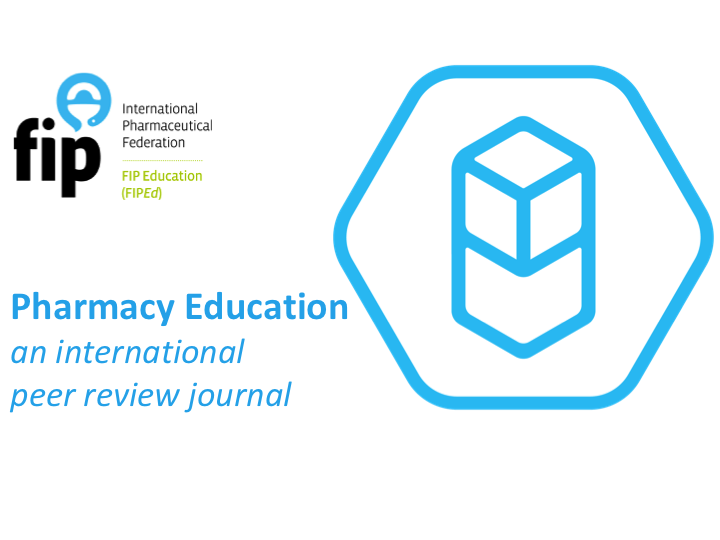Evaluation of community pharmacy internship programme in the Philippines
Keywords:
Community Pharmacy, Internship Programme, Learning Outcomes, Pharmacy EducationAbstract
Background: The community pharmacy internship programme is an integral part of pharmacy education in the Philippines. Its evaluation is necessary to continuously develop a comprehensive programme based on the needs and changing role of the profession.
Aims: This study aimed to evaluate the community pharmacy internship programme among the Philippine Association of Colleges of Pharmacy (PACOP) accredited schools in Metro Manila, Philippines.
Method: The study utilised a cross-sectional, descriptive research design, using a self-administered questionnaire as the method of data collection. The data was analysed using the IBM Statistical Package for Social Sciences© Statistics version 21 software.
Results: The overall response rate was 66.1% (n=267). Generally, students rated their internship experiences positively and perceived high level of satisfaction with how the programmes were carried out.
Conclusion: The students perceived that the community pharmacy internship programme was effective in attaining its learning outcomes, despite limitation of participation in internship activities and problems and barriers encountered.Â
References
Binos, R., Lara, K., Yu, A., Loquias, M., (2011). Perceptions of Pharmacy Students in Metro Manila towards their Preparedness to Provide Pharmaceutical Care. International Journal of Pharmacy Teaching & Practices, 2(3), 102 – 107.
Bowling, A. (2005). Mode of questionnaire administration can have serious effects on data quality. Oxford Journals’ Journal of Public Health, 27(3), 281-291.
Carter, E.A. & Segal, R. (1989). Factors influencing pharmacists’ selection of their first practice setting. American Journal of Hospital Pharmacy, 6, 2294-2299.
Commission on Higher Education [CHED]. (2006). Policies, Standards and Guidelines for Pharmacy Education. Philippines: Commission on Higher Education, 63-64.
Jackel, D. (2011). Evaluating the effectiveness of internship program. Master Theses & Specialist Projects. Paper 1117 (online). Available at: http://digital commons.wku.edu/theses/1117. Accessed 21st August 2013.
Mak, V.S., March, G.M., Clark, A. & Gilbert, A.W. (2013). Australian intern pharmacists’ perceived preparedness for practice, and their expectations and experiences of the internship year and future career intentions. Integrated Pharmacy Research and Practice, 2, 25-34.
McDermott J.H., Caiola, S.M., Kuhn, K.F., Stritter, F.T. & Beza, J. (1995). A Delphi Survey to Identify the Components of a Community Pharmacy Clerkship. American Journal of Pharmacy Education, 59, 334- 341.
Philippine Association of Colleges of Pharmacy [PACOP]. (2009). Instructional Materials Committee. Pharmacy Internship Manual (pp. 5, 14-21). Philippines: PACOP.
Radigan, J. (2009). The role of internships in higher education, New York: Farmingdale State College. (online). Available at: http://www.asee.org/ documents/sections/middle-atlantic/fall-2009/01-The-
Role-Of- Internships-In-Higher-Education.pdf. Accessed 9th September, 2013.
Robles, Y.R. (2009). Measuring the Impact of New Courses in the Revised Pharmacy Curriculum. Journal of Philippine Pharmacists Association, 2(1), 60.
Salenga, R.L. (2009). Community Immersion in Rural Philippines for Pharmacy Students in Community Pharmacy Internship Course. Journal of Philippine Pharmacists Association, 2(1), 27.
Wallman, A. (2010). Pharmacy Internship, Students’ Learning in a Professional Practice Setting. Thesis (PhD). Acta Universitatis Upsaliensis UPPSALA. Digital Comrehensive Sumaries of Uppsala Dissertations from the Faculty of Pharmacy.




